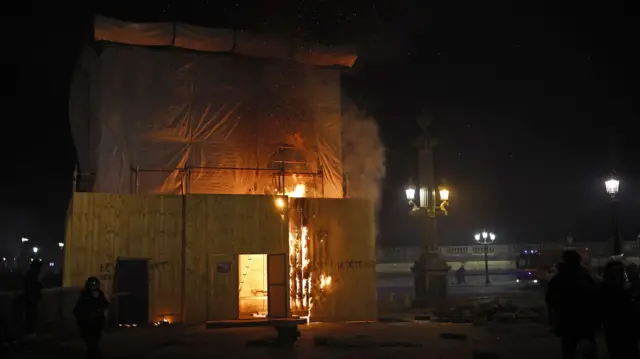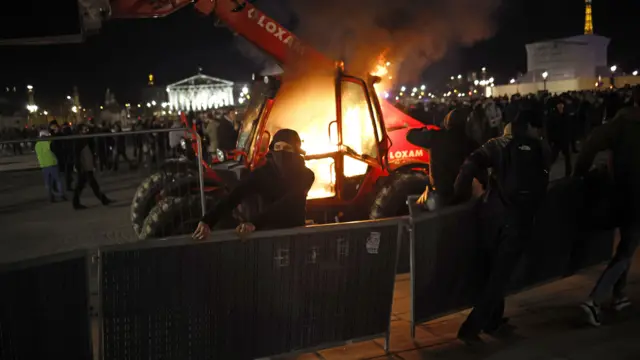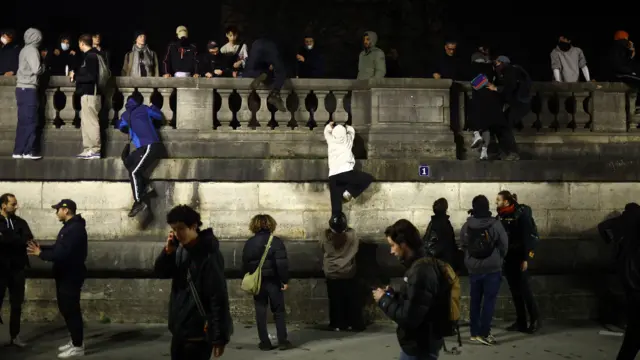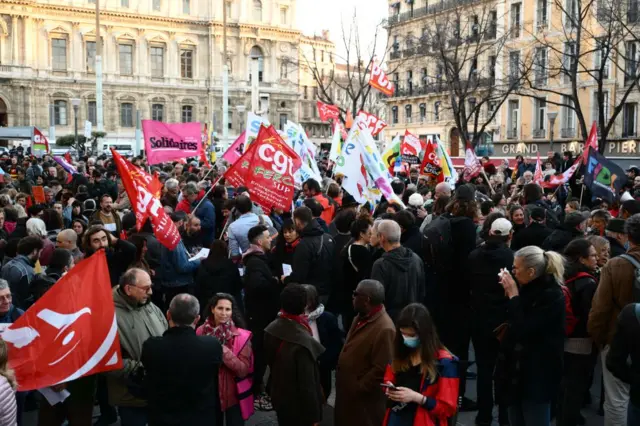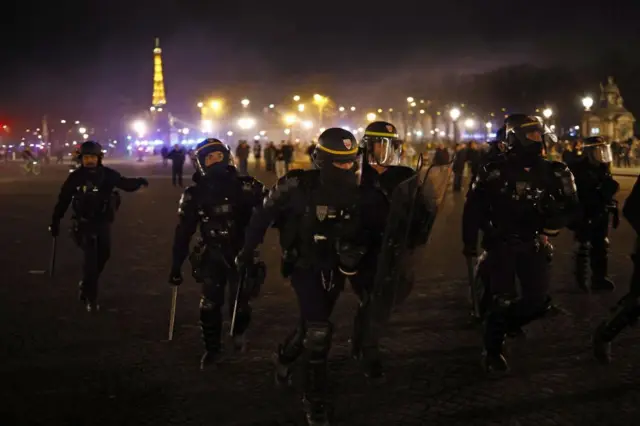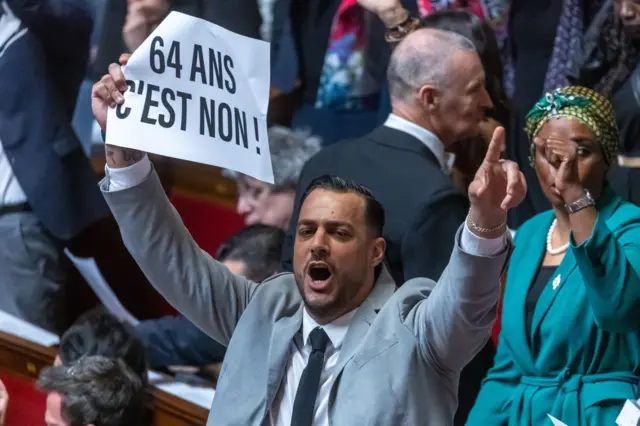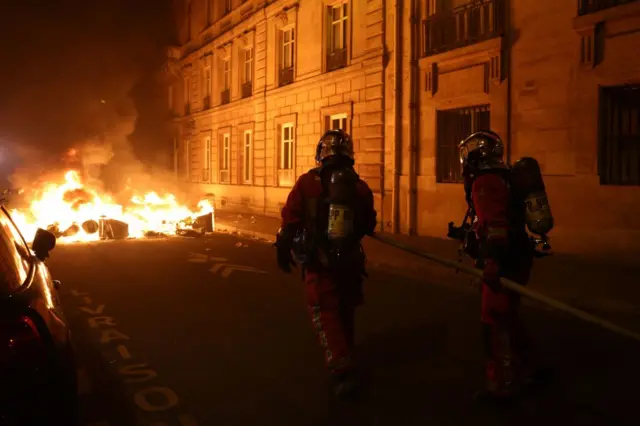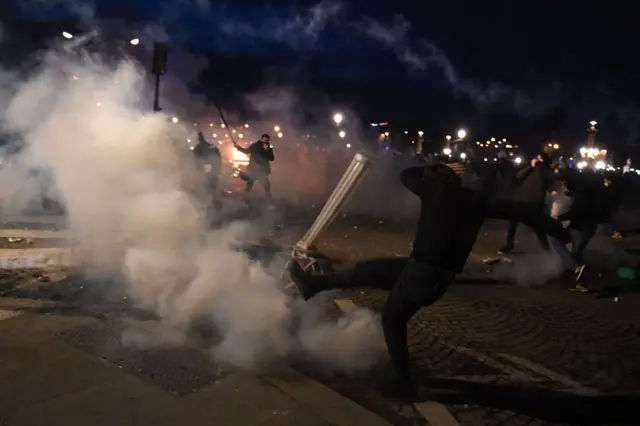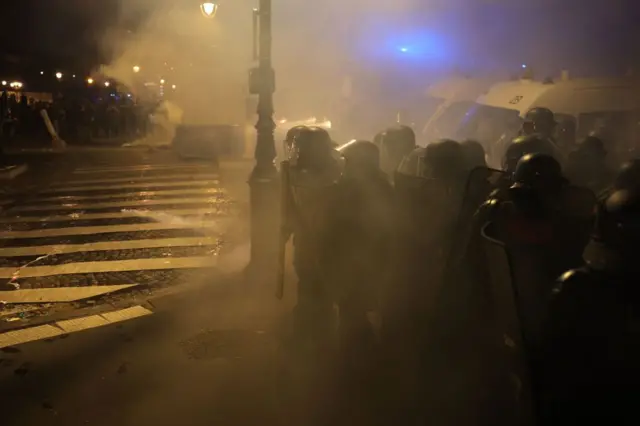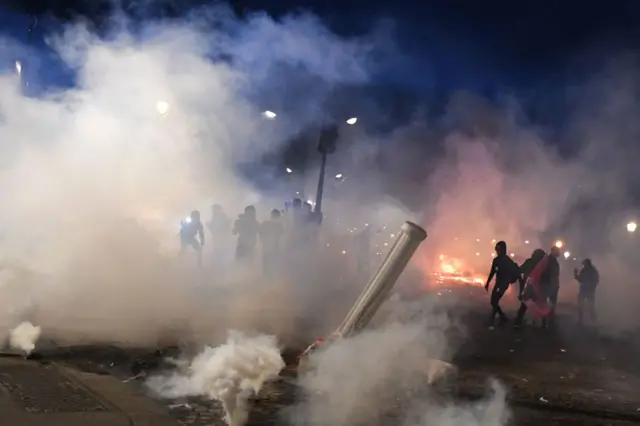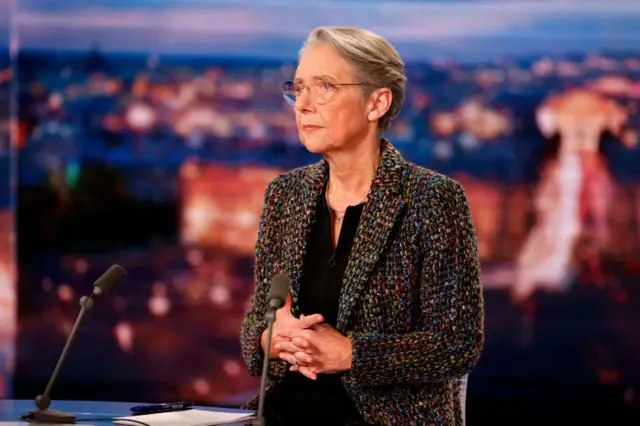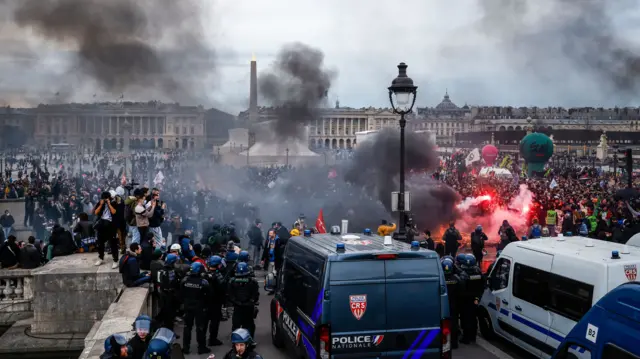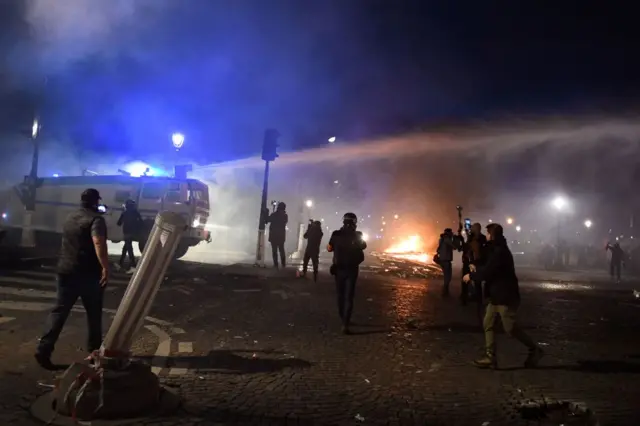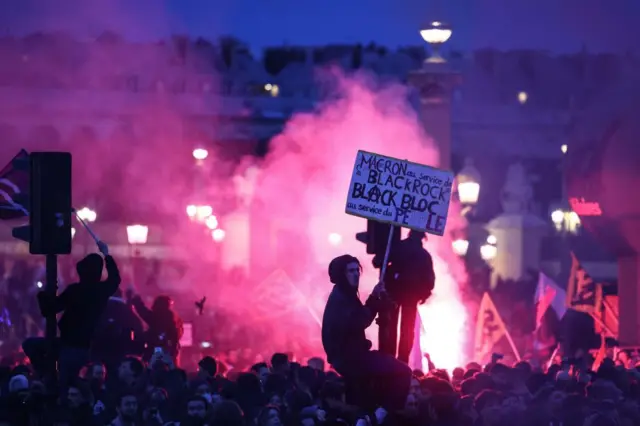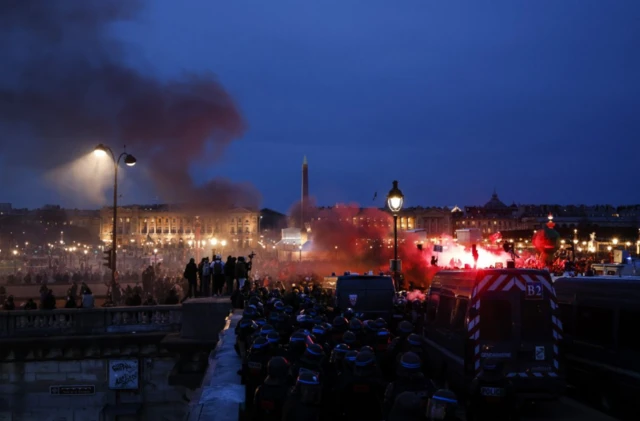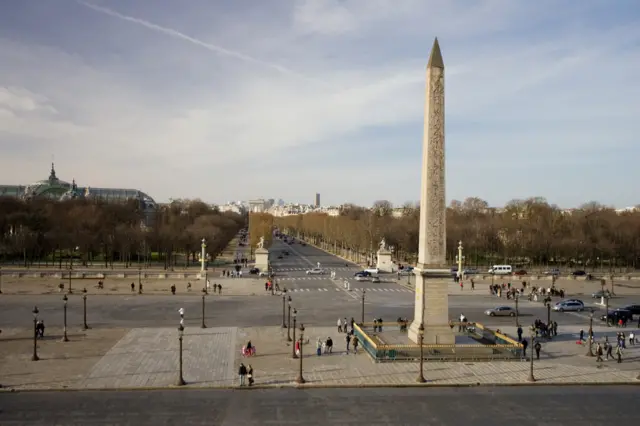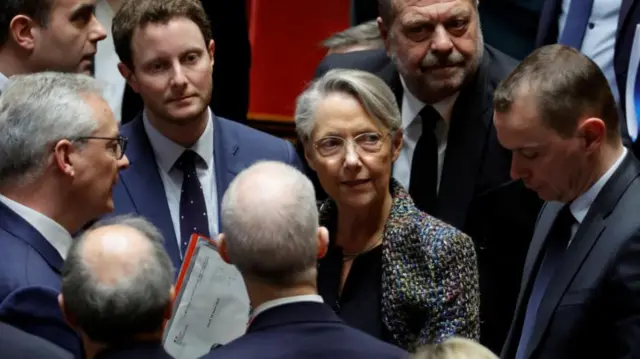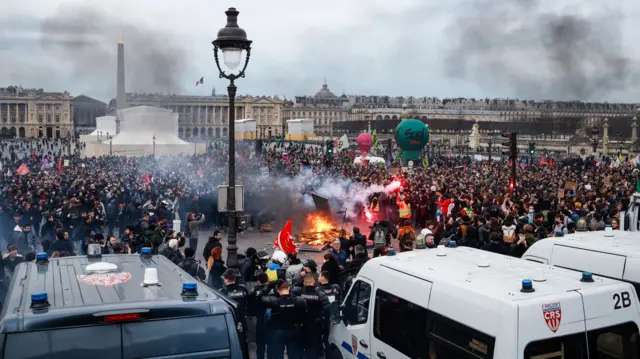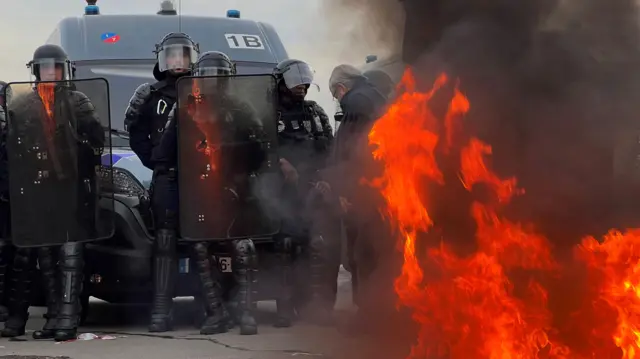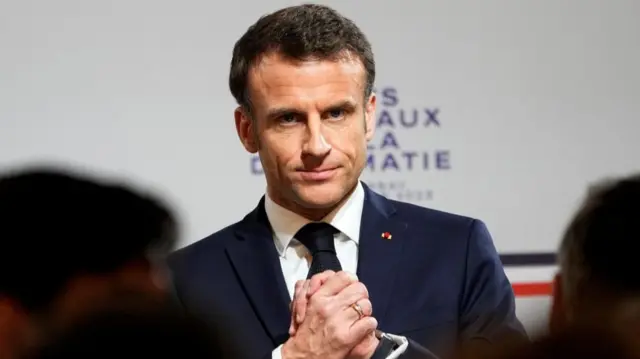Au revoir for now, we're pausing our live coveragepublished at 21:00 Greenwich Mean Time 16 March 2023published at 21:00 16 March 2023
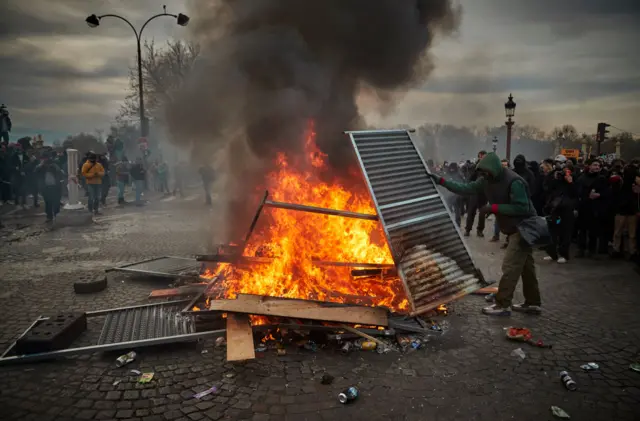 Image source, Getty Images
Image source, Getty ImagesThank you for joining us. Here's a round-up of what's been happening in France today:
- Tens of thousands of people have protested across the country after President Macron forced through controversial pension reforms
- A special constitutional power - Article 49:3 - was used by the government to avoid a vote in parliament, because Macron's government didn't think it would get enough votes to push it through
- When the PM announced the Article, opposition politicians jeered, yelled and sung the national anthem
- The reform will raise the retirement age in France from 62 to 64 - and there have been protests for weeks over it
- The government says the reforms are needed to prevent a major financial deficit in the future
- Far-right politician Marine Le Pen said opposition deputies would file a motion of no-confidence in Macron's government
- Tear gas was used to disperse demonstrations in Paris, while some protesters pelted police with objects
This live page was edited by Tiffany Wertheimer, Andrew Humphrey and James Harness.
The writers were Antoinette Radford, Jack Burgess, George Wright, Malu Cursino and Adam Durbin.
